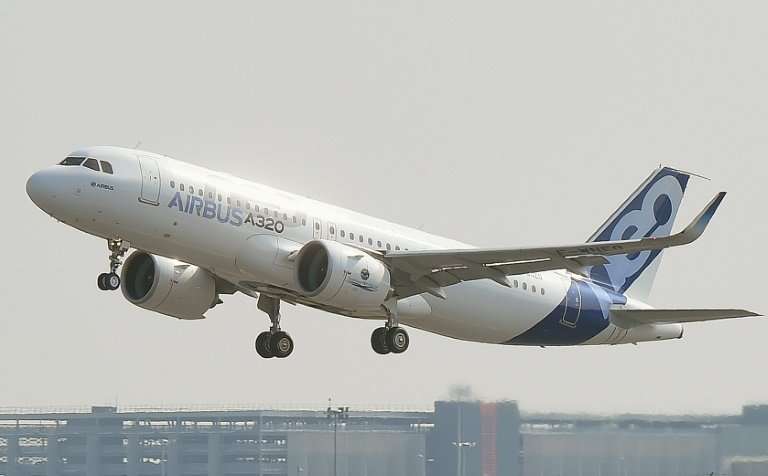Airbus is stepping up production of its A320neo planes, despite persisitent engine woes
Airbus aims to boost production of its A320neo aircraft and step up deliveries in the second quarter of the medium-haul carrier despite persistent engine woes, chief executive Tom Enders said Wednesday.
In 2018 "we do expect to deliver around 800 commercial aircraft," Enders told the European aircraft maker's annual general assembly in Amsterdam.
But he cautioned: "It is not going to be a walk in the park."
"We will not deliver aircrafts without engines, we have many gliders parked today in Toulouse and Hamburg. We talk about many dozens of gliders that need engines in the second part of the year in order to be delivered."
Some 181 A320neo aircraft—a new version of the medium-haul A320 jet with more fuel-efficient engines—were delivered in 2017, up from 68 during 2016.
But the new engines have suffered from technical glitches and delays and Enders has admitted that "the A320neo ramp-up remains challenging."
Despite the difficulties, Airbus hopes to boost monthly production to meet market demand, but is also hampered by its supply chain. It is aiming to boost monthly deliveries of the A320neo to 63 in 2019, compared to 60 initially planned. But Enders aimed to go even further.
"I just say from a commercial point of view, from a demand point of view, we absolutely see a strong basis to support a rate even going higher, up to 70 or higher," he said.
Airbus is examining its supply chain to see "whether this is realistic and feasible to continue to produce at a significantly higher rate than currently targeted," Enders added.
An Airbus spokesman confirmed to AFP that the company "commits to reaching a rate of 63" deliveries by the second quarter of 2019.
"We have a solid roadmap regarding the industrial capabilities of Airbus and its supply chain," Enders insisted.
A preliminary study has been launched, but any decision to increase production rates will only be taken with the full agreement of all stakeholders.
The neo aircraft are equipped with a new generation of engines and have aerodynamic modifications that allow airlines to save 15 percent on fuel, which is a major operating cost.
The medium-range, single-aisle Airbus aircraft and similarly upgraded Boeing planes have attracted thousands of orders as airlines seek to ensure they remain competitive in the future.
© 2018 AFP
























